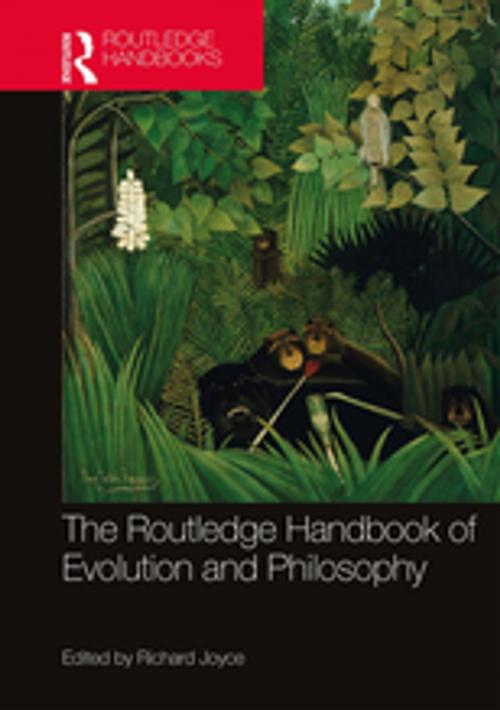| Author: | ISBN: | 9781317655565 | |
| Publisher: | Taylor and Francis | Publication: | August 16, 2017 |
| Imprint: | Routledge | Language: | English |
| Author: | |
| ISBN: | 9781317655565 |
| Publisher: | Taylor and Francis |
| Publication: | August 16, 2017 |
| Imprint: | Routledge |
| Language: | English |
In recent years, the relation between contemporary academic philosophy and evolutionary theory has become ever more active, multifaceted, and productive. The connection is a bustling two-way street. In one direction, philosophers of biology make significant contributions to theoretical discussions about the nature of evolution (such as "What is a species?"; "What is reproductive fitness?"; "Does selection operate primarily on genes?"; and "What is an evolutionary function?"). In the other direction, a broader group of philosophers appeal to Darwinian selection in an attempt to illuminate traditional philosophical puzzles (such as "How could a brain-state have representational content?"; "Are moral judgments justified?"; "Why do we enjoy fiction?"; and "Are humans invariably selfish?"). In grappling with these questions, this interdisciplinary collection includes cutting-edge examples from both directions of traffic. The thirty contributions, written exclusively for this volume, are divided into six sections: The Nature of Selection; Evolution and Information; Human Nature; Evolution and Mind; Evolution and Ethics; and Evolution, Aesthetics, and Art. Many of the contributing philosophers and psychologists are international leaders in their fields.
In recent years, the relation between contemporary academic philosophy and evolutionary theory has become ever more active, multifaceted, and productive. The connection is a bustling two-way street. In one direction, philosophers of biology make significant contributions to theoretical discussions about the nature of evolution (such as "What is a species?"; "What is reproductive fitness?"; "Does selection operate primarily on genes?"; and "What is an evolutionary function?"). In the other direction, a broader group of philosophers appeal to Darwinian selection in an attempt to illuminate traditional philosophical puzzles (such as "How could a brain-state have representational content?"; "Are moral judgments justified?"; "Why do we enjoy fiction?"; and "Are humans invariably selfish?"). In grappling with these questions, this interdisciplinary collection includes cutting-edge examples from both directions of traffic. The thirty contributions, written exclusively for this volume, are divided into six sections: The Nature of Selection; Evolution and Information; Human Nature; Evolution and Mind; Evolution and Ethics; and Evolution, Aesthetics, and Art. Many of the contributing philosophers and psychologists are international leaders in their fields.















